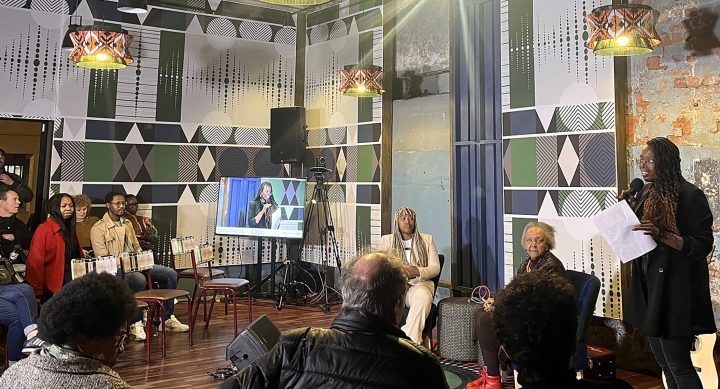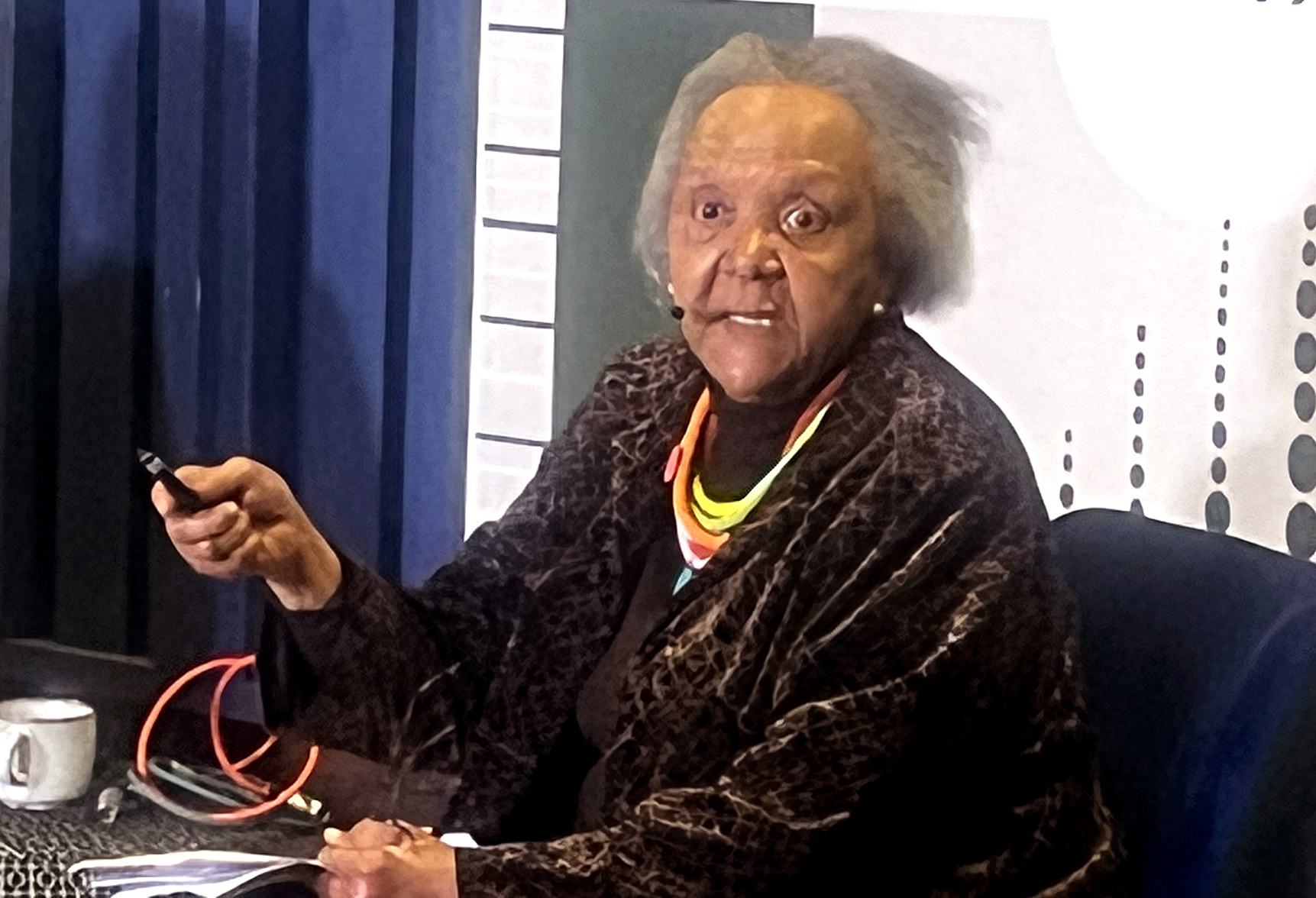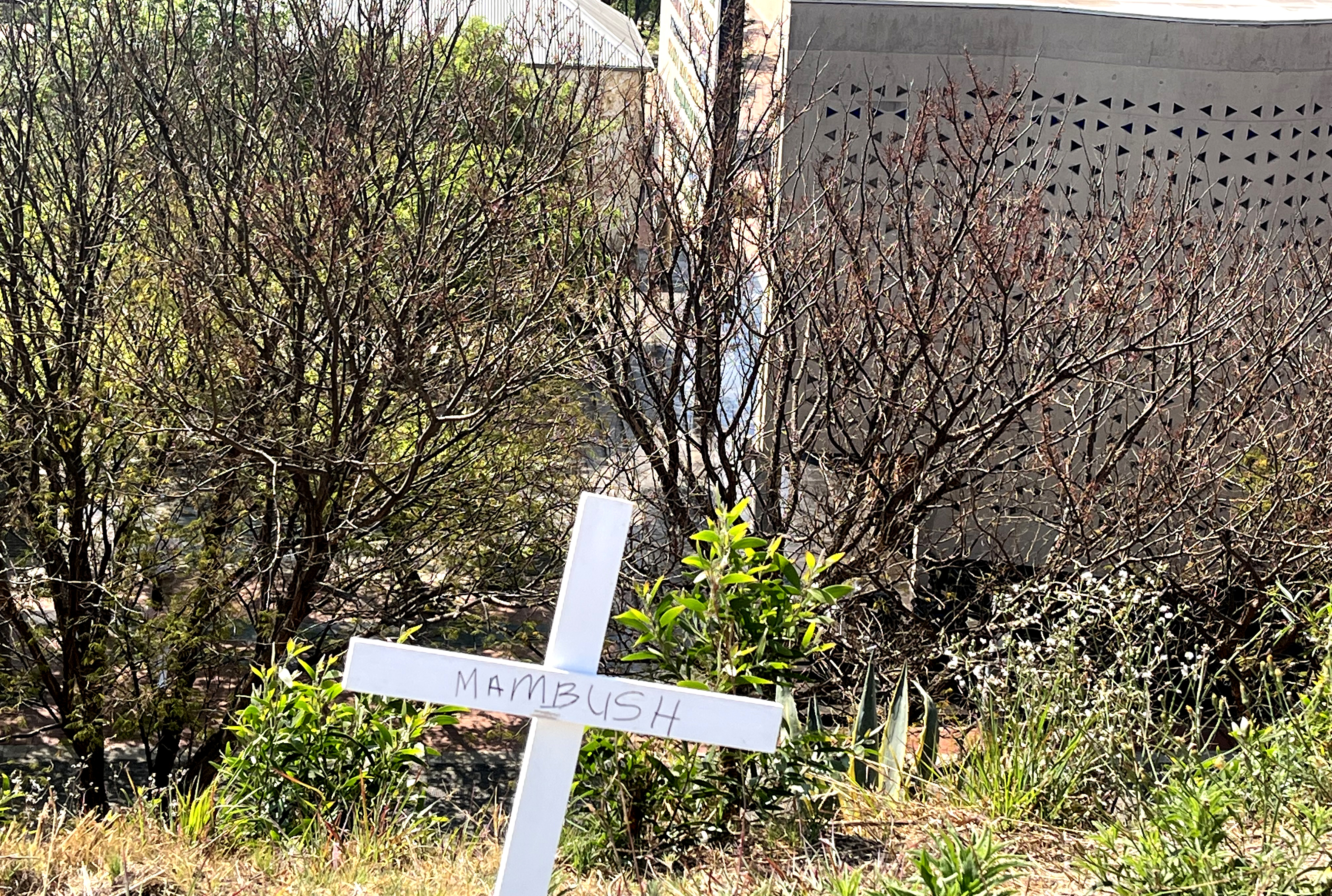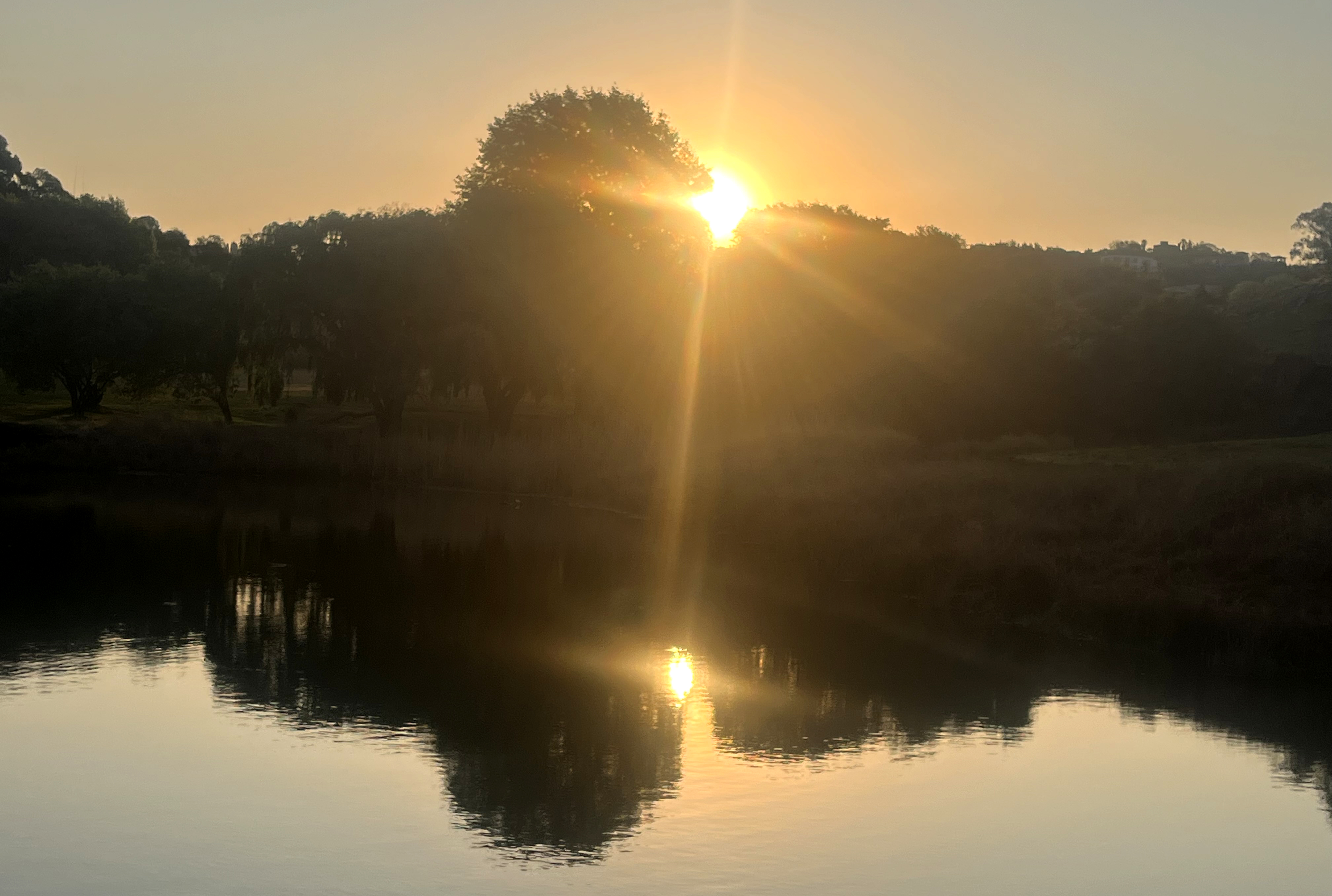WOMAN AS LIGHT BEARERS
‘Beauty is a basic human need’ – talking about art, justice and joy

Lamenting the continuing inequality in access to art, Barbara Masekela complained that ‘when we talk about the Constitution it’s daylight robbery of beauty. It says that people have a right to beauty.’
Every day in South Africa we are battered by ugliness; often with a bit of hate thrown in. In particular there’s the ugliness of politicians, rude, brutal, faux ideological, covering their sclerosis of the morals with swagger and bombast.
But there is still hope and there is still beauty.
I found it one evening in August in an intergenerational conversation between two women, poet and activist, Barbara Masekela and singer and songwriter, Msaki, organised by the Constitution Hill Trust, on the subject of “art, justice and joy”.
Barbara Masekela is known to many of us. A veteran activist and bonafide freedom fighter, a person with life as rich and textured as a tapestry. Msaki was hitherto unknown to me, but her words too ignited hope and wonder – light shone from both the legend and her progeny.

Freedom Writer: 81 year old Barbara Masekela in energetic conversation about beauty and the Constitution. Image: Mark Heywood
The conversation took place at the Old Johannesburg Fort, in a part of the prison converted into a beautiful recording room at Flame Studios. Constitution Hill is undergoing its own renaissance, and as with the recently opened permanent exhibition to Ahmed Kathrada, something special is emerging out of its cocoon.
The worst returns to laughter; beauty can emerge out of brutality… and in some ways that was the theme of the evening.
It wasn’t my intention to report that night. I was there for soul replenishment. But as soon as the conversation started I found myself scribbling. Sometimes you can’t help it; when people speak spontaneously in poetry and that poetry reaches into your own deepest concerns, instinctively you want to capture it, like a photograph.
“Art can resurrect and raise stories from the dead and that is justice to me.”
Not surprisingly the discussion started with some reflection on the symbolism of the prison, the Court precinct and its connection to the Constitutional Court Art Collection (CCAC). Lwando Xaso, lawyer and writer, set the scene with a carefully crafted welcome, reminiscing about art and injustice, summoning to mind Fatima Meer’s drawings while she was an inmate at the women’s prison “the only visual record of life in the jail from that period”.
Said Xaso: “Whereas justice is used to enforce just rules, policies and laws, art is an opportunity to break the rules of conformity, of the uninspiring, the dull, the outdated and unquestioned.
“Art is usually said to be in the domain of the heart and justice is in the domain of the brain. But I think it is mostly women who understand that these two cannot be separated; one enhances the other. What is the value of art with no justice and what is the value of justice with no art?” she asked.
Shifting us towards the theme of the evening, Xaso declared: “At the core of the Bill of Rights… is the respect for human dignity and what holds art and justice together is human dignity.”
From that moment on I got the sense that the setting and the occasion had provided Masekela with the opportunity she needed to pour forth some pressing matters of the heart. Much of what she said was to do with contemporary politics, but it was spoken in the language of poetry.

Justice and injustice: A cross memorialising the murder of Mgcineni “Mambush” Noki, one of the leaders of the Marikana strikers, looks down from the Old Fort ramparts onto the entrance to the Constitutional Court in Johannesburg. Image: Mark Heywood
“Beauty is an important thing… that belongs to all of us,” Masekela said, “yet we have failed to provide the opportunity for the majority of people to have a glimpse into beauty. Just to have a glimpse into it…” she lamented as went on to inventorise the everyday ugliness of poverty and its brutalisation of the soul.
“We have created a lot of ugliness in South Africa.”
Referring presumably to the artworks that form part of the CCAC (view some of them here) she said: “Art is not only in the [already] created thing. It is not only something that belongs to people who are creative. You can make beauty in the everyday lives of people. It is possible for people to have an intimation of beauty in their lives,” she said, recalling her own childhood and how her mother’s job as a social worker had taken her into homes in “squatter camps” where “in their squats they would create beauty for themselves, with newspaper cuttings, with cuttings from magazines like Drum. They would have them posted all over with carefully cut-out labels of tin foods, plastered on the walls.”
Drawing an unlikely parallel with Andy Warhol’s famous depictions of Black Bean Soup cans, Masekela said: “That was done by these people. They did it where they lived. They created beauty for themselves.”
Lamenting continuing inequality in access to art, Masekela explained that “art has got its own apartheid, it’s about people who can afford art and go and look at art and buy it, and this is the preserve of a few people”.
“When we talk about the Constitution it’s just daylight robbery of beauty because it says that people have a right to beauty, yet in our efforts to transform we have not taken into account these people.”
Her conclusion: “We need a serious busing programme, as long as we do not have these facilities now we should have a way of bringing the people to the art, if it is not with them.”
Recalling her own relationship with books and libraries as a young woman, Masekela also talked about the power of art to create freedom: “we are so seized by our own pain and suffering that we endured… that we throw away our heritage and history… and this is where we also need art to bring out the greater dimension of life to us.”
Read: “20 Years Later – The Role of Art and Justice in South Africa’s Democracy | African Futures”
Picking up on these themes, Msaki rose to the occasion, declaring that “beauty is a basic need… beauty is justice… there’s this Constitution with these beautiful words, but the reality is that there’s no beauty in how people are living, and there’s no space to perceive themselves.”
She explained that [for black people living surrounded by] “violence, the last thing you are thinking about is beauty, but everybody deserves a chance to see themselves as they are, to have the dignity to decorate their homes, to see themselves perceived in art… beauty is not just for the rich… But for that to be a priority, yes there are basic needs, but can we see beauty and art as one of those as well?… and not look at it as a luxurious or privileged way of looking at life.”
Msaki observed that because of poverty many “black people have no space, they have to cultivate an inner space to survive, hence religion and spirituality”. Describing it as a trauma response, she said: “You are going to have to turn inwards if your environment is just violent towards you.”

Sunset at the Alberts Farm Conservancy in Johannesburg. The beauty hides the fact that for homeless people living there, the park has become a place where they suffer police harassment, eviction and insult from homeful residents who live in the area. Image: Mark Heywood
Later, reconnecting the themes of justice and art and turning to her own compositions, Msaki said: “I vowed to open up little courtrooms within my music and within my visual art. Because the courtrooms are failing us sometimes out there and so you open an inquiry in a song, or an installation.”
And so the two’s riffing on art and politics continued, like jazz, meandering, striking off in different directions, live and not prescribed by dogma or slogan.
As Masekela said, “being able to imagine is such a freeing thing in itself”.
That August night, as I listened to the ebbs and flows of the conversation, I thought about the light that we do have around us, even if we are dismayed by the darkness and paucity of our leaders. I thought about how this discussion went to matters that lie at the core of our being.
Yet, when I went back to listen to the recording to write this article, I found it even more layered on a second listening. It had many threads and many themes. I have captured only a few. I highly recommend you watch the conversation on YouTube: We The People – In Conversation | South African Women As Lights On The Hill. DM/MC/ML
Visit Daily Maverick’s home page for more news, analysis and investigations

















Comments - Please login in order to comment.